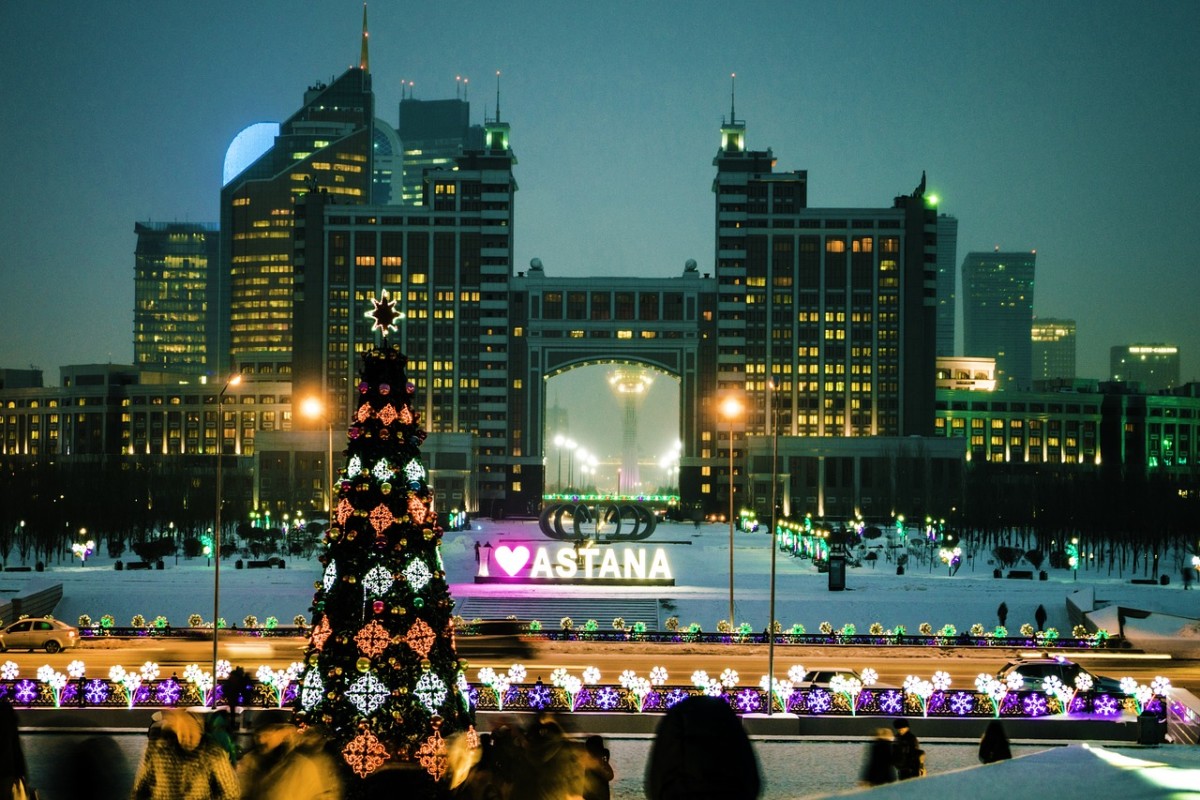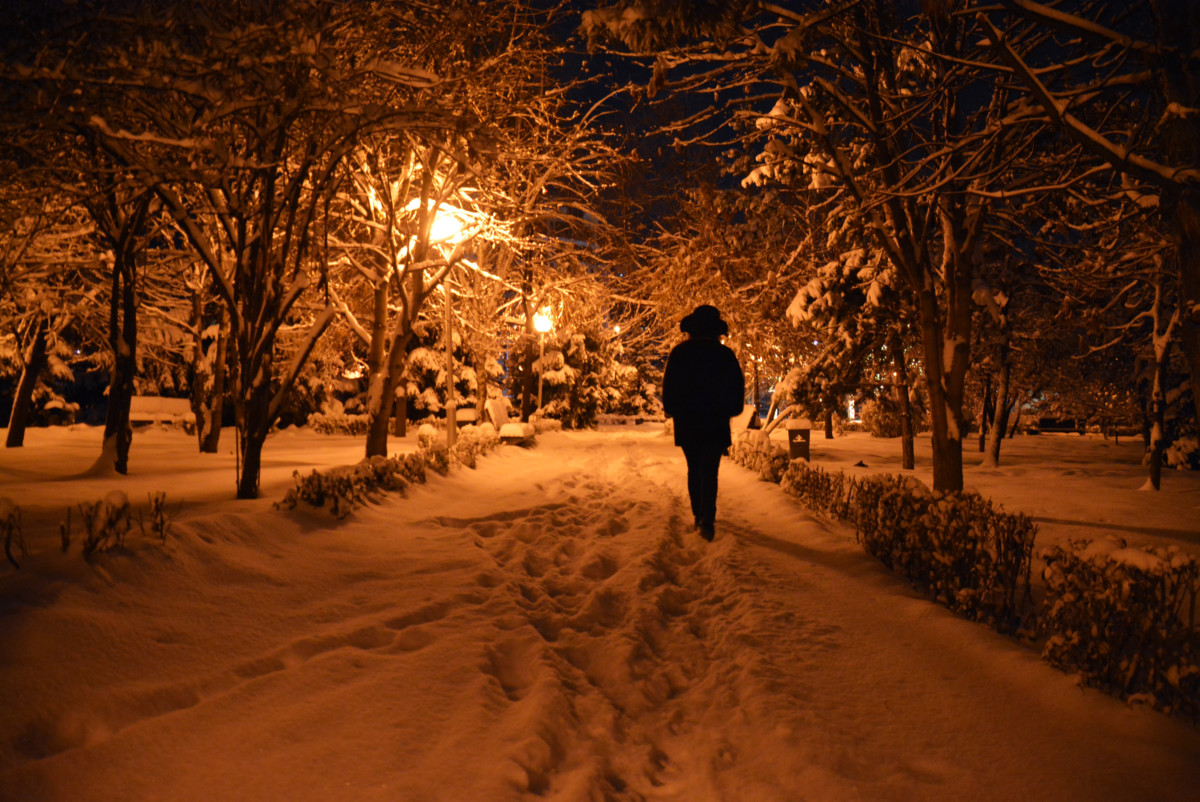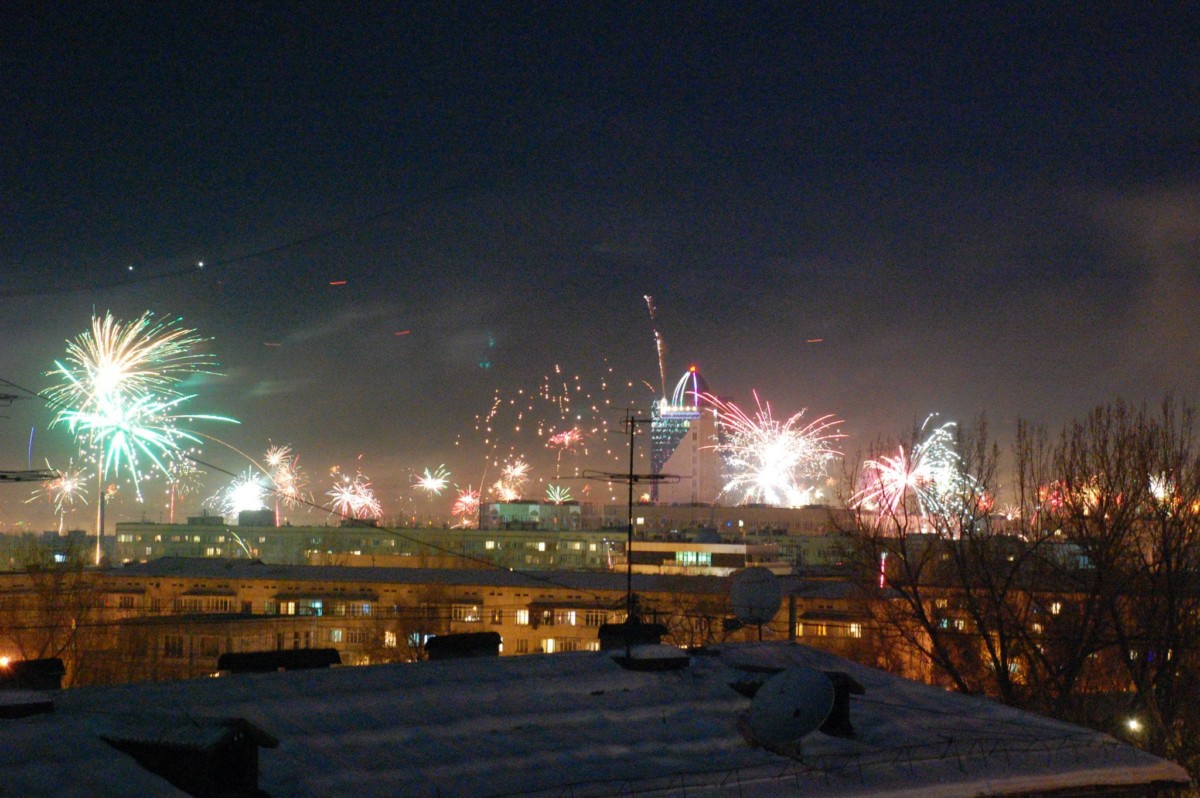Young Joo Jun is a third-year journalism student at St. Thomas University. She grew up in Almaty, Kazakhstan. She enjoys photography, doner kebab and letter-writing.
Only the Christians, and sometimes rich people, celebrate Christmas in Kazakhstan. Seventy per cent of the country is Muslim, 26 per cent is Christian and the rest are of mixed religion. Back home, New Year’s Eve is the equivalent of a Canadian Christmas.
I grew up in Almaty, a city hub and the second most important city after the capital, Astana. On March 20, 2019, Astana was renamed to Nur-Sultan, after the president’s first name Nursultan Nazarbayev. Almaty used to be the capital, until the president decided to build his own capital in a different place.
Kazakhstan is a mixture of ethnicities, including Turkic and Mongolian. There are also many Russians because we used to be a part of the Soviet Union.
The New Year’s Eve celebrations start the morning of Dec. 31. People rush to prepare food, decorations and fireworks to meet before midnight with their family.
Women usually start making traditional New Year’s food in the morning. They prepare salads like Оливье and dressed herring, which originates from Russian culture.

Baursak is a dish from Kazakh culture. It’s airy dough fried in oil and one portion has around 50 pieces. There’s also Uzbek Plov, made from fried rice, carrots, Qazi (horse meat sausage), garlic and lamb.
Being partly a Koryo-saram, the term used for ethnic Koreans originating from post-Soviet states, my mother makes a traditional dish called Kuksi. I’m always excited for it because she only makes it once a year. This dish is made up of noodles, soup and five separate salads combined in one bowl. It’s similar to ramen but served cold.
Besides the main dishes, champagne, tangerines, sweets, soda, juice and tea are a must on the festive table.
While the women prepare food, men and kids either play in snow, buy fireworks or decorate the house with snowflakes and Christmas lights. Some women who have spare time go to beauty salons to get their hair, makeup and nails done.
Once everything’s complete, everyone dresses up in fancy outfits.
By 9 p.m., friends and family start feasting and chatting. TV channels play classic New Year’s movies all day. It’s almost a tradition to watch 1976’s The Irony of Fate and 2010’s Yolki on New Year’s Eve.
Around 11:30 p.m., people start raising their glass one by one and wishing the best for the upcoming year. It low-key becomes a competition on who has the most creative speech.
At 11:50 p.m., the national TV channel Khabar plays a ten-minute video where the president talks about how amazing the past year was and wishes everyone a good future. As the clock strikes 12, glasses are raised and clinked.


It’s believed that if you write your wish on a small piece of paper when the clock strikes midnight, set it on fire, throw it into your glass of champagne and drink it, your wish will come true in the following year.
Not even five minutes into the new year, phones start ringing non-stop. Those not celebrating in the room with us, call to wish everyone a Happy New Year. Telephone companies struggle to handle the amount of calls, and sometimes calls fail to go through.
At the same time, the government sets up a firework show that lasts between five and 10 minutes. Some citizens join in by shooting fireworks from their balconies and open spaces outside. Some go out for sled rides or to visit friends nearby. Others stay home to eat more food while some go to party in night clubs.
At 3:50 a.m., the ritual repeats. Russian President Vladimir Putin appears on Russian channels and people reach out to friends and family in Russia to wish them a Happy New Year.
Around 5 a.m., people go to sleep. The next day, homes are left with a fridge full of food that one will have to force-feed onto themselves for the next week because throwing it out would be a waste. Attempting to give away food to others won’t always help because they’ll give you the same amount of food in return. That’s etiquette, and they probably also made too much food.
And this is how our New Year’s is celebrated in Kazakhstan.
HOME is a bi-weekly column where people from different countries can express what home means to them. If you would like to write for this column, please send an email to [email protected]

